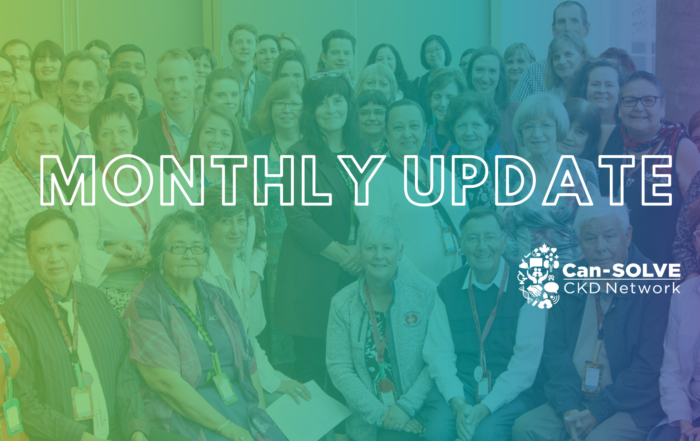For many people living with a rare disease, there are often few treatment options or even a lack of understanding about what causes the disease. One group of Canadian researchers is striving to change this for patients living with glomerulonephritis, a more rare form of kidney disease that’s associated with unpleasant and sometimes life-threatening complications.
Glomerulonephritis occurs when the tiny filtering units inside the kidneys become damaged. These units, called glomeruli, play an important role in filtering nutrients and toxins from the blood. When glomeruli become too damaged, it can cause swelling of the feet, high blood pressure, blood in the urine, and other symptoms. Patients with glomerulonephritis are also at risk of kidney failure.
Studying glomerulonephritis is in part difficult because it is quite rare. As well, there has traditionally been little funding or resources dedicated to researching the disease, especially on a large scale.
“There are no treatments approved for primary glomerulonephritis in Canada. So that reflects how little we know of the biology of glomerulonephritis, and also reflects a big need in terms of people who are affected by it,” explains Heather Reich, a nephrologist at the University Health Network.
To address these gaps in research, Dr. Reich has partnered with a team of nephrologists to launch a nation-wide initiative, the Canadian Glomerulonephritis Registry, funded by Can-SOLVE CKD. The group is collecting detailed data from volunteers with glomerulonephritis, which will be used to increase our understanding of the disease and how it affects Canadians. In the long-term, the data will hopefully lead to the development of new, specialized treatments for patients.
The initiative was launched in 2018, and the number of glomerulonephritis patients enrolled in the study now exceeds 100, making it the largest glomerulonephritis study ever conducted in Canada. The number of people enrolled is expected to continue to grow.
Tracking a large number of patients is not an easy task. To do so, the research team built a web-based system that allows doctors across the country to participate in the research study and enter data from patient volunteers.
“We also built a platform that allows us to track DNA and biological samples from patients,” explains Reich. These samples, she says, will be matched with clinical data from the volunteers, providing valuable insights into the demographics, risk factors, current treatment practices, and other important factors related to glomerulonephritis.
But Reich highlights an unintended benefit of the research project – the creation of a core team of nephrologists who are now focusing their attention on this traditionally overlooked disease.
“I’m most excited about the fact that our network is a group of researchers that can continue to work together in the future. They are a group of keen investigators that have been working hard for the cause,” she says.
Notably, nearly half of the nephrologists helping to conduct this study are new to leading glomerulonephritis research. This project is therefore helping to shift greater focus on glomerulonephritis within the renal research community.
Reich says the level of enthusiasm and commitment from the team has been high. “I’m really appreciative,” she says. “I think it shows that the attitude of the Canadian research community is to really make a difference in this area.”
Learn more:



Connect with us